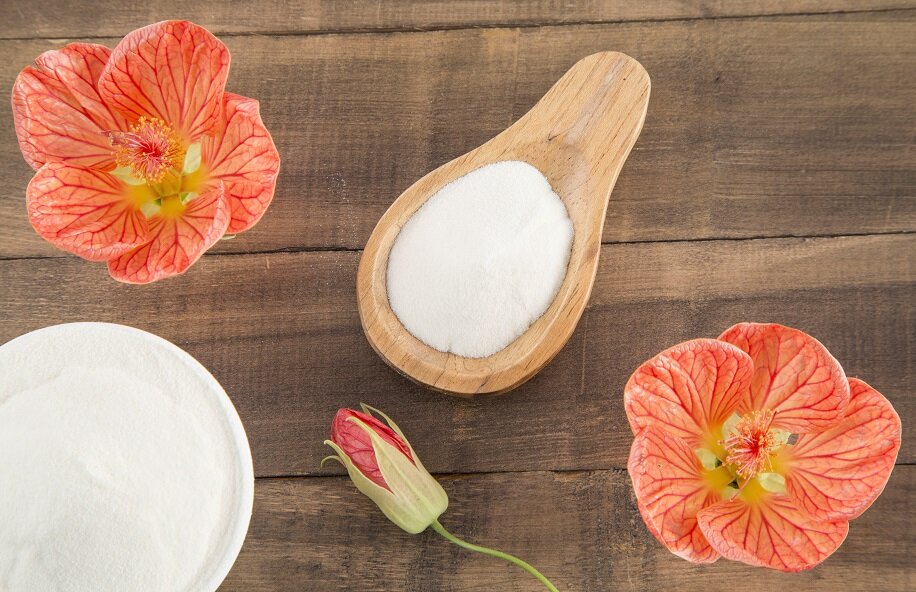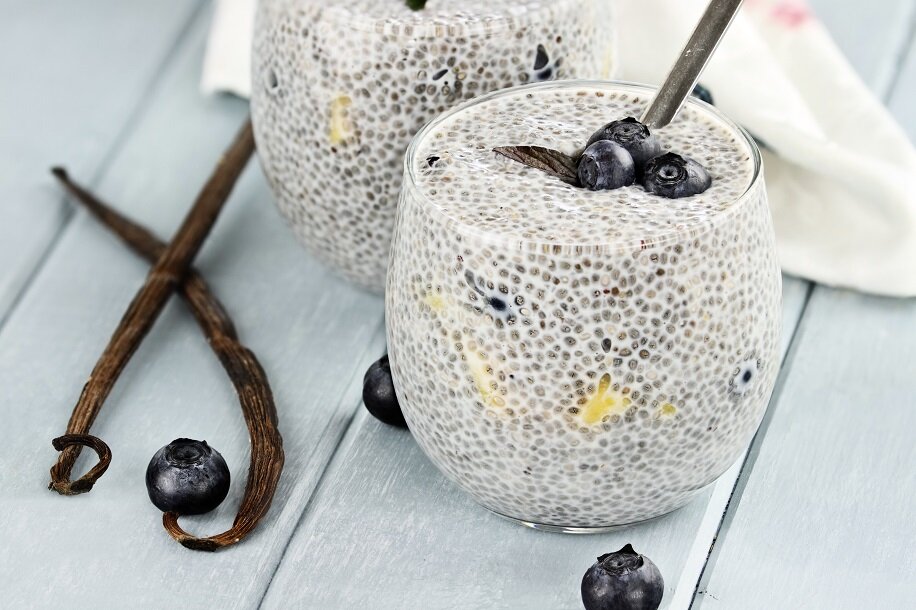4 Reasons Why You Need To Add Collagen to Your Diet (And 4 Easy Ways To Do It)
Collagen is getting a lot of attention lately. It seems to be popping up everywhere and with good reason. You’ll see it in powders, coffees, teas, juices, and protein bars. But what is it exactly, and do you need to be taking it? Collagen is a protein that is present in the skin, bones, muscles, ligaments, and connective tissue. We often hear how it can benefit us on the outside – our hair, skin, nails – but the benefits go well beyond that. It can actually help to heal the gut, lower inflammation, balance hormones, and so much more. Here are a few of the reasons I recommend adding collagen into an already nutrient-dense diet.
Collagen is a protein that is present in the skin, bones, muscles, ligaments, and connective tissue. We often hear how it can benefit us on the outside – our hair, skin, nails – but the benefits go well beyond that. It can actually help to heal the gut, lower inflammation, balance hormones, and so much more. Here are a few of the reasons I recommend adding collagen into an already nutrient-dense diet.
Balance hormones
Collagen is a great source of amino acids like arginine, glutamine, glycine, and proline. These are essential for producing healthy levels of hormones. Collagen can also support healthy thyroid function and reduce the metabolic stress of increased cortisol.
Improve gut health and digestion
The amino acids in collagen provide unique soothing and restorative properties for the digestive tract. The high concentration of the amino acid glycine stimulates stomach acid production, which improves digestion and nutrient absorption. And, since the gut is where the majority of the immune system is located and responsible for the production of serotonin, it can also help with fighting illness, autoimmune conditions, and mood disorders.
Lower inflammation
Chronic inflammation can wreak havoc on your body. Any good nutrition plan or diet should consider lowering inflammation as a top priority. Inflammation causes your body to hold onto fat, makes you feel tired all the time, and can lead to chronic diseases and autoimmune conditions. Since most inflammation stems from the gut, it is collagen's ability to help restore balance to our digestive tract that makes it effective in fighting inflammation.
Improve joint and bone health
The amino acids in collagen, gylcine and proline, repair tissue, lessen inflammation, and provide relief from joint pain. Several studies also show that supplementing with collagen builds bone density. Collagen peptides stimulate osteoblasts, which are the cells responsible for bone formation. The best way to get collagen is through food sources, but there are now good, quality collagen powders that make incorporating collagen into your routine even easier. Here are a few easy ways to add it in.
- Make bone broth. This is the best food source of collagen and its cooked counterpart, gelatin. Homemade with good quality bones is best -- make big batches and freeze it in an ice cube tray for later use -- but if you want to grab it at the store you can usually find it in the refrigerated or frozen food section. You can sip it from a mug, use as a base for soups, or steam your veggies with it.
- Add it to coffee or tea. This is an easy way to get it first thing in the morning, especially if you’re in the habit of running out the door without breakfast with only a cup of coffee in hand. Just blend it up with a hand frother and you’ll be set for an hour until you can get your hands on some real breakfast!
- Blend it in a smoothie. Combine your favorite frozen veggies, healthy fats, and collagen peptides for a low-carb, high-protein smoothie that will keep you full for hours. My favorite combo is half a frozen banana plus 1 cup frozen zucchini, 1 cup spinach, 1 Tbsp flaxseeds, 1 Tbsp cacao powder, ice, Califia coconut milk, and water.
- Mix it into chia seed pudding. This recipe is one of my favorites for starting your day with protein, fat, and fiber (instead of sugary, low-fat yogurt). Add 3 Tbsp of chia seeds to 1 cup of your favorite nut-milk. After it thickens, stir in a couple scoops of collagen peptides and you have yourself a blood sugar-stabilizing breakfast.
 Make sure to allow enough time for its effects to show up. It may take eight weeks before you notice a reduction in inflammation, visible changes in skin texture, and improvement in joint health. For recommendations on my favorite collagen powder supplements, you can check out my resources page here.
Make sure to allow enough time for its effects to show up. It may take eight weeks before you notice a reduction in inflammation, visible changes in skin texture, and improvement in joint health. For recommendations on my favorite collagen powder supplements, you can check out my resources page here.

